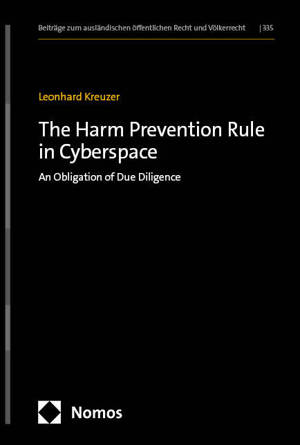
- Afhalen na 1 uur in een winkel met voorraad
- Gratis thuislevering in België vanaf € 30
- Ruim aanbod met 7 miljoen producten
- Afhalen na 1 uur in een winkel met voorraad
- Gratis thuislevering in België vanaf € 30
- Ruim aanbod met 7 miljoen producten
Zoeken
€ 110,45
+ 220 punten
Omschrijving
The harm prevention rule - including the due diligence standard of conduct it requires - is often seen as a potentially powerful accountability mechanism for malicious cyber operations of state and non-state actors when attribution fails. Yet a lack of clarity on its doctrinal status, content and scope has hampered its practical utility so far. To address this problem, the book provides the first comprehensive analysis of the harm prevention rule in cyberspace. Through an in-depth analysis of state practice and opinio iuris it carves out which risks of cyber harm trigger due diligence obligations to prevent harm and which measures states are required to take in concreto. The book differentiates between binding minimum standards and non-binding best practice standards.
Specificaties
Betrokkenen
- Auteur(s):
- Uitgeverij:
Inhoud
- Aantal bladzijden:
- 327
- Taal:
- Engels
- Reeks:
- Reeksnummer:
- nr. 335
Eigenschappen
- Productcode (EAN):
- 9783756013562
- Uitvoering:
- Hardcover
- Afmetingen:
- 153 mm x 227 mm
- Gewicht:
- 573 g

Alleen bij Standaard Boekhandel
+ 220 punten op je klantenkaart van Standaard Boekhandel
Beoordelingen
We publiceren alleen reviews die voldoen aan de voorwaarden voor reviews. Bekijk onze voorwaarden voor reviews.











